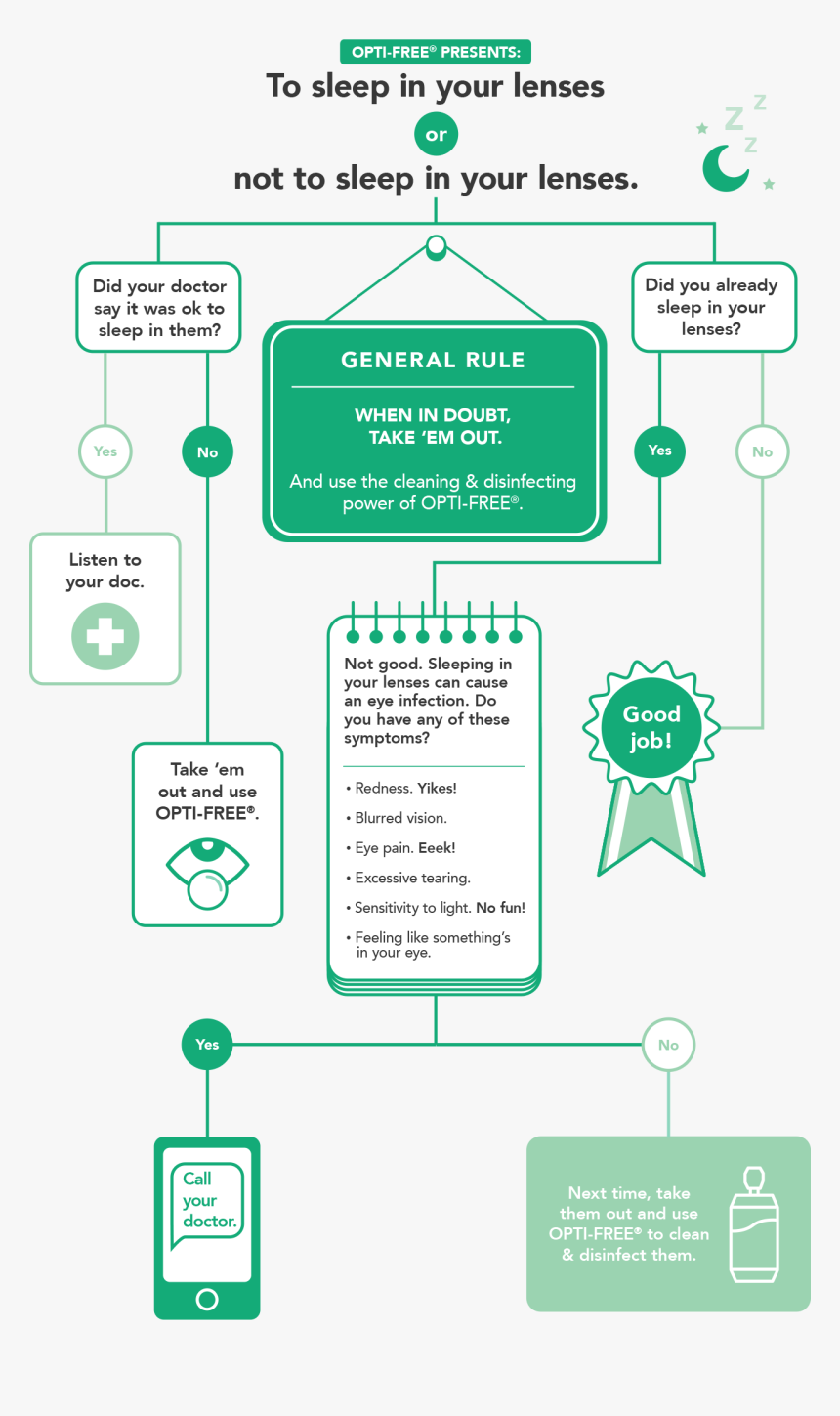
When it comes to contact lens wearers, the question of whether one can sleep with their lenses in becomes a topic of considerable debate. With the myriad of options available in the market, understanding which contact lenses are suitable for overnight wear is crucial for eye health and comfort. This article delves into the landscape of overnight contact lenses, offering insights into the safe options, their benefits, and considerations that every wearer should heed.
Firstly, it is imperative to distinguish between different types of contact lenses. Contact lenses can generally be categorized based on their material and intended usage. There are traditional lenses, designed for daily wear, and extended wear lenses, which allow for overnight use. The primary factors that differentiate these lenses include oxygen permeability, moisture retention, and the duration for which they can be safely worn.
Extended wear lenses are specifically engineered to be worn continuously, even while sleeping. The modern materials used in these lenses incorporate advanced technology that enhances oxygen transmission to the cornea, thus minimizing the risk of complications associated with overnight use. Notable among these are silicone hydrogel lenses, which have dramatically transformed the landscape of contact lens design.
S silicone hydrogel lenses are widely regarded for their superb oxygen permeability. They allow significantly more oxygen to reach the eye compared to conventional hydrogel lenses. This is paramount, as an ample supply of oxygen is vital for maintaining corneal health, particularly during prolonged wear. Examples of reputable brands that manufacture silicone hydrogel contact lenses suited for overnight wear include Acuvue Oasys, Air Optix Night & Day Aqua, and Biofinity.
Acuvue Oasys lenses are acclaimed not just for their comfort but also for their ability to combat dryness. They are engineered with a unique hydration technology that ensures the lens maintains moisture throughout the day and night. This feature is crucial for users who may otherwise experience discomfort due to dry conditions while sleeping. Additionally, they offer a high level of UV protection, shielding the eyes from harmful rays.
Next in line is the Air Optix Night & Day Aqua, a lens that sets a benchmark in extended wear. What makes these lenses particularly noteworthy is their ability to be worn continuously for up to 30 days. Their design promotes oxygen flow, thus reducing the chances of hypoxia, which can lead to a multitude of ocular issues. Moreover, the surface of the lens is designed to resist deposits, making them remarkably easy to maintain during extended use.
Biofinity lenses also exemplify the advancements of silicone hydrogel technology, allowing for up to 30 days of continuous wear. These lenses are renowned for their exceptional comfort, making them a popular choice amongst users. Biofinity lenses include a unique Aquaform Technology, which integrates a natural wetting agent within the lens material itself. This innovation drastically enhances moisture retention, reducing the propensity for dryness and discomfort.
It is essential, however, to approach overnight lens wear with due diligence. While silicone hydrogel lenses are designed for extended wear, potential risks remain. The primary concern is the heightened risk of developing infection, particularly if lenses are not maintained within the prescribed hygiene protocols. Proper lens care, including regular cleaning and replacement, should always be adhered to, regardless of the lens type. Regular examinations by an eye care professional are also advisable to ensure optimal lens fit and eye health.
Those who are considering switching to overnight wear should also contemplate their individual lifestyle and eye health needs. Factors such as the frequency of lens wear, the presence of allergies, and any underlying health conditions may influence the choice of lens. Consulting with an eye care specialist can provide tailored recommendations based on personal circumstances, ensuring both comfort and safety.
A shift in perspective is necessary. The allure of the convenience offered by overnight contact lenses must be balanced with a conscientious approach to eye care. Sleeping in the wrong type of lenses can lead to complications such as dry eyes, blurred vision, and infections, putting the overall ocular ecosystem at risk. Therefore, understanding the mechanics of the lenses one chooses can not only enhance comfort but also protect overall eye health.
Emerging innovations in lens technology also warrant attention. Continuous research is devoted to developing lenses that not only improve visual acuity but also enhance wearability during sleep. Future advancements may provide options that reduce risks even further while maximizing comfort. Wearers should stay informed about the latest in contact lens technology to make well-informed decisions regarding their eye care.
In conclusion, the landscape of overnight contact lenses holds promising options for those desiring the convenience of continuous wear. Silicone hydrogel lenses, like Acuvue Oasys, Air Optix Night & Day Aqua, and Biofinity, emerge as safe and effective candidates in this realm. However, the responsibility lies with the wearer to adhere to safety precautions and proper lens care to mitigate any potential risks associated with extended wear. Armed with knowledge and the right lenses, wearers can embrace the freedom that overnight contact lenses offer without compromising their eye health.
